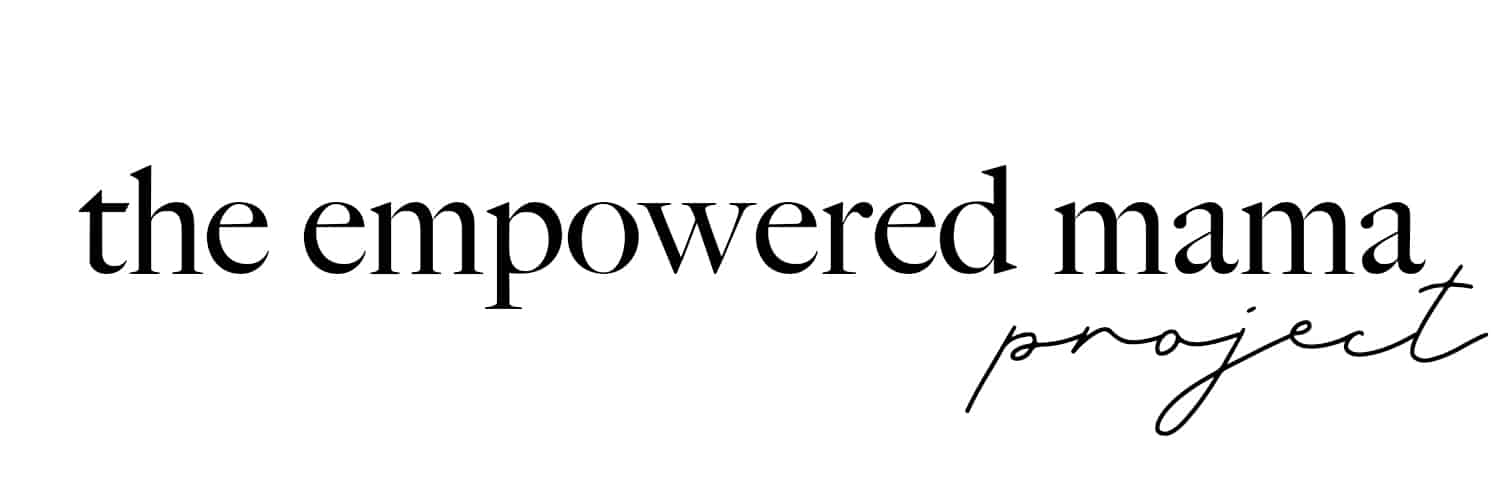OK. So you’re going to be a Dad. The fun part is over, and you’ve started to venture into very unfamiliar territory.
This is not the time to panic.
In fact it’s never the time to panic, because chances are your partner in crime is a hormonal, emotional, overwhelmed wreck.
I thought I’d go to the source for this one, and ask Hubby for his input. This is all I got. “There’s not a lot to it, it’s just being patient – and don’t complain”.
So there you have it. The pearls of wisdom from another first-time Dad. To give him credit, he’s been in a relationship with a Midwife for the last ten years. I imagine he felt like he was all over it. Like he knew exactly what this whole baby thing was about.
But for those of you who haven’t been so blessed to marry a Midwife, let me break down for you exactly what he did to be the ultimate Daddy Doula.

During The Pregnancy…
1 – Get Educated About Birth
Get educated about birth & familiarise yourself with it. Searching for ‘positive birth videos’ on Youtube can be a great way to get an idea of the primal sounds and sights you may experience in supporting your partner through birth.
Birth trauma amongst Dads is very real, and understanding the difference between what is normal and what isn’t can make all the difference to your experience of birth.
It can be confronting if this is your first time, but trust me, you don’t want to just wing it. She needs you to keep your cool.
Go beyond the generic hospital antenatal classes. Although these are great for familiarising yourself with your birth location, there is so much information that just can’t be covered in a set time frame.
Hypnobirthing education is a great addition. Whether wanting to ‘hypnobirth’ or not, these classes are incredibly comprehensive and inclusive of partners.
My hubby was hesitant on this one, but when it came to crunch time it was what he learnt in our Hypnobirthing classes that got him (and me) through.
There’s also lots of great Dad-specific education out there. Some decent resources are Beer And Bubs and Birthing 4 Blokes.
2 – Think Ahead and Be Prepared
The last thing you want to be doing is driving around in circles trying to work out the carpark system while your partner is in labour.
You need to know exactly where you’re going, and the quickest route to get there.
If you’ve ever been to a hospital, you’ll know they can be like rabbit warrens. Make sure you book in to do a birth suite tour… and remember the way to get there.
Other important practical matters include making sure all the important phone numbers are in your phone (Midwife, babysitter, Birth Suite etc), and ensuring the baby capsule is in the car WELL before you anticipate baby arriving.
Trust me, you’ll get brownie points for this one. She’ll love you for being so reliant and well prepared.
If birthing babe at home, discuss with your Midwife how to prepare the birth space and get down to your local hardware store.
You’ll be surprised at what you will need – hoses, hose fittings, tarp, towels – lots and lots of towels.
3 – Learn What To Say (And Not Say)
If you haven’t heard of ‘pregnancy and birth affirmations’ before, I suggest you Google it.
Not only are they a great way for your partner to reduce fear and anxiety going into birth, but they basically tell you exactly what to say to her during labour.
There are so many affirmations out there, so the idea is that your partner chooses a handful that resonate with her – that make her feel confident and empowered.
Some examples are “my body knows exactly what to do” or “each surge brings my baby closer”.
Whatever affirmations she chooses, encourage your partner to see them, hear them and believe them in pregnancy. Have them written on cards and stick them up in the shower or on a mirror.
In labour, saying the affirmations will make you the ultimate Daddy Doula – who doesn’t want a birth partner telling them how amazing their body is?
Labour is hard, and Mamas will doubt themselves at some stage – your role is to believe in her, and tell her so, even when she doesn’t believe in herself.
When it comes to ‘what not to say’, well, I’ve heard a few doozies from Dads in my career. You’d think it’s blatantly obvious, but sometimes common sense isn’t that common.
I’ve heard “settle down, it’s not that bad”, “It’s like watching your favourite pub burn down”, and many completely inappropriate and disrespectful remarks. Along with lots of moaning about sore backs, hunger and how long it is taking.
Which brings me back to my Husband’s advice – “There’s not a lot to it, it’s just being patient – and don’t complain”.

4- Don’t Let Fear Stand In Your Way
A woman will birth best when she is surrounded by people who completely believe in her ability to do so.
This starts as early as pregnancy. If you’re feeling fearful, that is OK – and normal, but you need to find ways to address that so you aren’t offloading those fears onto your partner.
Going back to point 1, getting educated about birth and watching positive normal birth videos can be a huge help in relieving anxiety and gaining confidence in birth.
As a Dad, it is so common to be worried about the wellbeing of Mum and babe, and that will probably always be there, but that doesn’t mean you can’t have confidence and belief in her ability to do it.
Talk out your fears or worries with your Midwife, you’ll learn a lot, and your partner will be able to get an understanding of where you’re coming from, without feeling like she has to take the burden of your fears on top of her own.
5 – Respect What’s Important To Her
Ultimately, she’s the one pushing out a baby, so you’ve got to respect what’s important to her (even if you find it weird).
Discuss birth preferences together, and take the time to write them out as a birth plan.
Do you know what positions she’d like to labour in?
Do you know if she wants to birth in water or not?
What does she want to do with her placenta and how does she want to birth it?
Does she want pain relief?
Does she have preferences for non-pharmacological pain relief options?
Do you know how those preferences would change in the case of caesarean or emergencies?
The power of a birth plan isn’t the actual plan, it’s the process of becoming educated about all of your options.

In Labour…
6 – Get The Timing Right
When to go into hospital is always a main concern of parents-to-be.
Without worrying about silly contraction timing apps and watching the clock, it’s better to learn the different behaviours and contraction patterns in early labour vs. active labour.
In early labour, for uncomplicated pregnancies, the best place to be is at home in your own environment.
Early labour can fizzle out just as much as it can establish into active labour.
Transferring to hospital, bright lights, unfamiliar faces, and the real-ness of it all happening can really stun the hormones, body and mind out of labour.
Not to mention the first examination of dilation can often ‘start the clock’ – and no one wants to be on a time limit when trying to birth a baby.
Staying home until Mama is confident she is in active labour gives her the best shot at keeping it that way, and keeping interventions out of the picture.
Remember… anxiety = adrenaline = increased pain. Your role in this is to keep Mama calm, loved, hydrated, eating protein rich snacks, and suggest different comfort options like shower, heat pack, TENS machine, bath, massage etc.

7 – Protect The Birth Space And The Head Space
Filter out the external world – protect the birth space and head space.
Do not talk to her about text messages, who is saying what, whether you got a parking ticket, or if she wants drugs.
Let her be – watch how endorphins and oxytocin wash over her, taking her mind and body into labour land. The thinking brain must turn off for these hormones to do their job best.
Keep the room dark and quiet, and help her to feel unobserved and nurtured.
Try not to stare at the machines and analyse the monitoring equipment. Just be present with her. Hold her. Say affirmations to her, and cheer her on.
Women are not designed to birth in clinical, bright, noisy, daunting environments. The same way we need the right mood and setting to enjoy sex, we need the right setting to birth well.
8 – Ask Questions & Advocate
Birth can be really unfamiliar territory. Even with lots of education, we can never 100% prepare for any situation that could arise.
If you are worried about something or have questions, don’t freak out quietly. Ask the Midwife or Doctor – no question is silly, and they’ll probably be glad you asked and opened up the opportunity for discussion.
Well-informed parents means well-informed decisions.
It’s important to know your partner’s values, what she wants and doesn’t want in labour and birth, and be prepared to advocate for her.
It is really hard for a labouring woman to think or take in information… remember the thinking brain has to turn off to labour well.
One way you can advocate for her is to use the BRAIN acronym in decision making when talking with care providers:
Benefits – Risks – Alternatives – Intuition – Nothing:
What are the benefits of doing what is being suggested?
What are the risks associated with it, or with not doing it?
Are there any alternatives?
What does intuition/ gut feeling tell you?
And what if you were to do nothing?
Using your BRAIN promotes informed decision making, and therefore better birth experience.

9 – Be Present
Be present in the birth space. Don’t be on the phone or watching the monitoring equipment. If there’s a TV in the room, keep it off!
There is so much you can do for your partner to physically help her through labour.
- hold her
- be close to her,
- wipe a cool wet washer on her face,
- hold her hands,
- help her mobilise,
- remind her to breathe slowly,
- learn and use the hip squeeze,
- keep her hydrated with sips of icy water,
- diffuse her favourite oils,
- keep her chosen music playing,
- keep the lighting dim,
- massage her lower back and backside,
- remind her to soften her face,
- shoulders and hands in-between surges,
- support her weight,
- keep the TENS machine going and the heat packs hot.
Your role as a birth partner is invaluable. Own it and both you and Mama will be more likely to have a better birth experience.
And remember – be patient.

After Your Baby Is Born…
10 – Cut The Cord, But Not Too Soon
Cutting the cord is an age old right of passage for men transitioning into fatherhood.
To be honest, I hate it when Dads get squeamish about doing it… I just think ‘seriously?’ It’s like chopping raw calamari. Just do it.
For me there was nothing more special than watching my Hubby separate our son from the placenta that nourished and grew him. After all, I was knackered and just glad he was out. That was my time to chill.
‘Delayed/optimal cord clamping’ has many known benefits to baby, so cutting the cord is often held off for several minutes after a baby is born, if the parents request DCC.
It can even be cut once the placenta has been birthed, rather than rushing those early moments that could better be spent bonding and admiring babe.
11 – Skin To Skin When Mum Can’t
The benefits of ‘skin to skin’ are well known for not only Mum and baby, but Dad too.
For a gentle transition from womb to world, skin to skin is vital. But there are times when Mum can’t do it, whether it’s because of an emergency, or simply because she wants to jump in the shower.
By doing skin to skin with baby when Mum can’t, you’re promoting bonding between yourself and babe, confidence in yourself as a parent, as well as helping babe to normalise their breathing, heart rate, temperature and blood sugars.

12 – Practical Help And Protecting The Space
After bub has arrived, nourish your partner with snacks and something to drink. Help her to get to the shower or toilet – her body will be sore and shaky.
Take lots of photos – you will forget some of the precious moments without them.
Don’t race out of the room for a cigarette or to call people, don’t bombard her mind with conversation about text messages and who is saying what – just be in the moment. Breathe in that gorgeous baby.
It is a truly sacred time, those first hours, days, weeks after birth.
There is so much you can do in the first few hours to keep it sacred, and ensure Mum and Baby get off to the best start for bonding, breastfeeding and physical and emotional recovery. Prepare for this time by learning about ‘the fourth trimester’.
Long gone are the days when Dads went off to the pub while Mama did the ‘women’s business’.
As a Dad you have a vital role not only in birth support, but throughout the pregnancy and postnatal period also.
Do this as a team, and you’ll walk away feeling so much more involved, educated, confident and bonded to your partner and baby. Good luck!






























Dustin Everson
Monday 24th of February 2020
I found this blog to be very helpful and relieve a lot of unknown anxiety I have about being a first time father. There is a lot for new to take in but i do feel more confident about the process and what to expect.
Sierrah
Sunday 16th of June 2019
I really enjoyed reading this. Such a important informative post. All men should read this, especially number three. I couldn’t imagine how I’d react to anyone saying something rude to me while I was in labor. I know it wouldn’t be good. Thank you for sharing.
Savannah
Sunday 17th of February 2019
Thank you for such a great list. I have read through a few different blogs with tips for first time dads during labor. One blog was simply ‘What not to do’ and while there were valid tips, I know it would not be received well by my husband due to its tone and presentation. This article touches on the same points, but doesn’t come across accusatory that all men are selfish and stupid when it comes to labor support. I know my husband will naturally be a good labor support, but knowing what to expect will help decrease his anxiety the day of and make him that much better. Thanks again for such a great post!
Krystal Kleidon
Sunday 17th of February 2019
So many people forget that labour is a big deal for dads too! We become mothers, they become fathers, and having their positive support can make a huge difference. My husband was nervous, worried he wasn't going to know what to do. They naturally know how to support us, but giving direction can help them a lot. Wishing you and your husband the best in bringing your babe earthside <3 - K